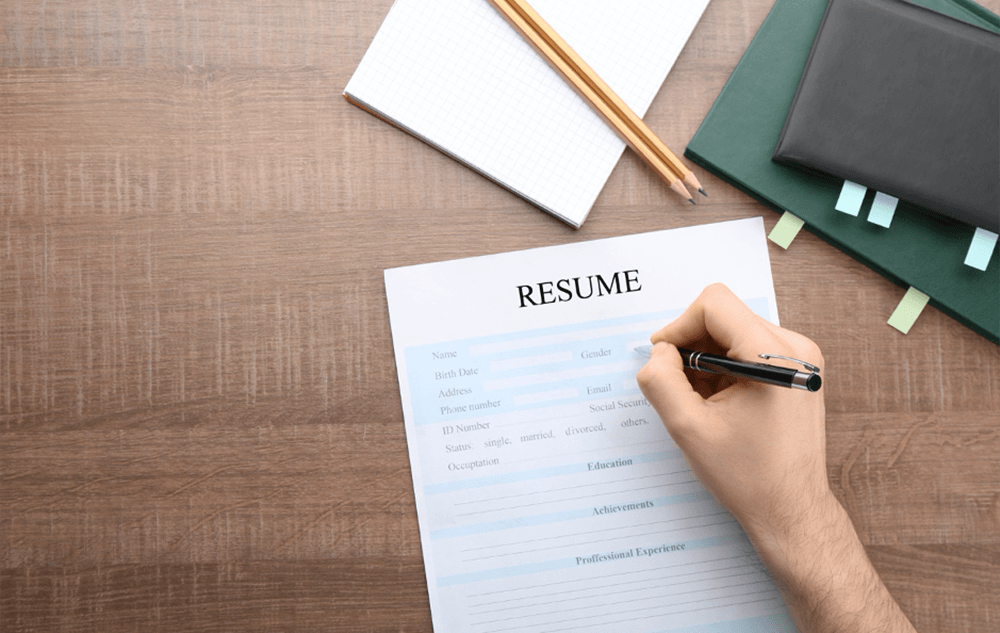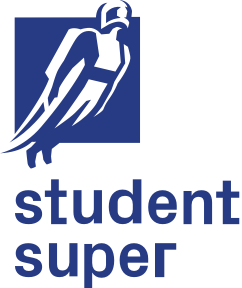How to Structure Your Job Application As A Student
2 min read
It can be hard applying for jobs as a student. You might not have had the chance to work in the industry or develop on the job skills. But don’t worry, you still have a lot to offer, you just need to know how to showcase your skills. In this article we break down the two elements of job applications – resumes and cover letters. We’ll provide tips and tricks to help you land that job!
A resume has three very important sections - your work experience, your education and your qualifications (if applicable). As long as you have these three down, you should choose two out of the ‘supplementary’ sections that employers might like to see. These could include your personal summary, key skills, extracurricular activities and/or personal interests.
Nothing talks more than raw results. If you’re able to tell them that at X company, something you did resulted in a 30% increase in profit, or that you broke a company record by selling 100 sneakers in a day, that says something about you. You’re not bragging, you’re providing evidence that you’re a smart, capable person who consistently produces great results. Make sure that you are telling the truth and that you can back up your claimed number.
It’s important to give context to statements about what you did at work. It might sound good to put on your resume that you “liaised with international delegates on key processes”. However, it’s important to explain what the company does and your specific role to give context to your actions. Even if it’s simple, it sounds better to write that you “served as the first point of contact to international delegates to organise exchange programs and build international relationships”. As HR managers will only spend a short time reading your resume, the easier it is for them to see what you’ve accomplished the better.
You can include a short section about your personal interests or achievements if you have something quirky or different. This section is a wonderful way of writing that you are a three time local slacklining champion, collect old coins, have a side hustle baking cupcakes or even that you simply like to draw. This will make you sound like an actual, interesting human, beyond a collection of work experiences and qualifications. It also gives employers something to ask you if you get to the interview round.
This one is simple but make sure that your headings and body are all the same size, font, colour and position. Crazy colours and fonts can make it harder to get across your points.
A great way of checking if your resume is readable is to send it to someone and ask if they can understand what’s going on. You want it to be simple, clean and easy to scan. Remember that the HR department will take less than a minute to read your resume.
Absolutely. The most important part of a cover letter is conveying your eagerness to work at the company. It’s something your resume might not necessarily be able to get across. Some companies don’t ask specifically for a cover letter. However, it can be helpful to still put one in.
Think of a personal connection to the company and tell them about it. Whether it was something as small as meeting a company representative at a networking event or something as significant as using their product or service first hand - it gives you huge brownie points.
Usually, if you browse the company website long enough, or look at the bottom of the job description, there's the name of the key contact. Address your cover letter to them by name, rather than “to whom it may concern”. Show that you have paid attention to who they are and you are speaking directly to them, it’s much more personal.
What is it about you that they need to know? Is it that you’re an incredible leader? Are you able to juggle multiple priorities at once? HR often spends only 10 seconds looking at each cover letter so you really need to highlight your abilities clearly. Good skills to include are stakeholder management, organisation and time management, dealing with ambiguity and managing change.
Make sure that your career aspirations align with the company’s values. If the company mantra is something like “making real, lasting change in the world”, you want your cover letter to read, “It is my career aspiration to create real, meaningful impact on the community around me.” You want them to know that you’ve paid attention to the company values and mantra. Make sure not to copy it word for word, try to apply it to an experience or skill you have.
The longer you write, the less they read. Keep your sentences short and get to the point. If you’re using 50 words to write “I am a hard worker”, it leaves you with no words to tell them about that one time you worked yourself to the bone to meet a deadline. While it might be tempting to pad your cover letter with professional buzzwords like “creative, analytical, initiative-taking,” they mean nothing if you’re not left with any space to actually talk about your experiences.
You want to put colour and personality into your cover letter to stand out. Use examples of your experience that show true impact for the team or business rather than just a bunch of buzzwords. Don’t make the cover letter one that the HR employer could find online, make it individual and specific to you and the job you are applying to.
Once you’ve got your resume and cover letter in order, don’t forget to get your accounts set up. When you start work your boss will ask for your bank account details, super fund details and Tax File Number.


Join other Australian students that are saving with zero admin fees for balances under $1,000.
See our Fees & discounts page or PDS for details



